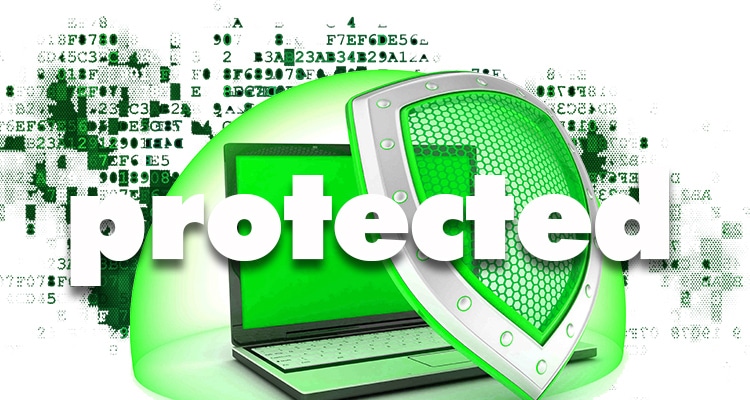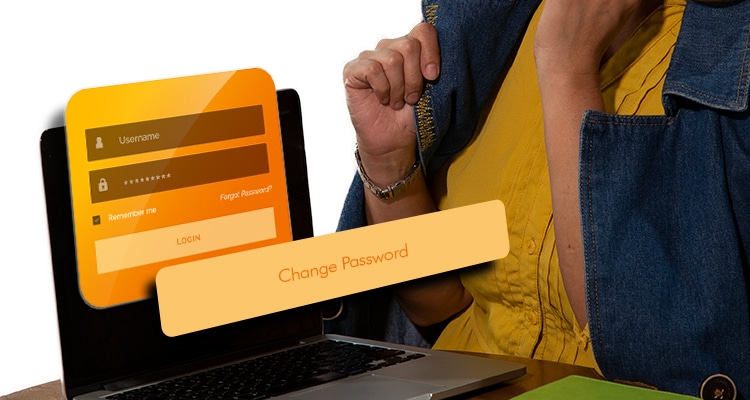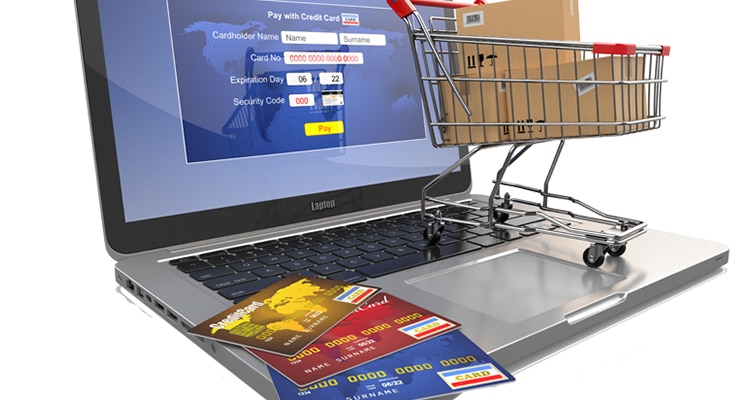Many remote workers today are also avid online shoppers.
This doesn’t come as a surprise, as online shopping is convenient and fast, much like working from home. With a simple click, you gain access to a wide range of products nationwide and have them delivered to your doorstep.
However, as online shoppers increased, so too have online scams and frauds. In the Philippines alone, there have been 869 reported cases of online fraud between March and September 2020, an increase of thirty-seven percent (37%) in the same period in 2019. And during the holidays last year, there was a surge in online fraud attempts.
To help you in protecting yourself and your loved ones while online shopping, here are eight responsible online shopping tips you should always bear in mind.

Regularly Check and Update Your Computer’s Antivirus.
Before you purchase anything online, you should ensure your computer is safe from cyber-attacks. The first step is to update your computer’s antivirus so that it can protect you from malware, viruses, and other online phishing scams.

Always Shop From Reliable Websites.
One of the most basic responsible online shopping tips is to avoid buying from suspicious sites. When searching for a product, don’t just jump in where it’s cheapest – also look at where it’s being sold.
It’s best to stick to trusted sites like Shopee or Lazada when shopping for items online.
Hackers know this and have designed their scam websites to look just like legitimate ones. Double-check the site for misspellings or a different top-level domain (instead of .net, it’s .com) before you click on it.

Use Different Passwords for Your Accounts and Regularly Change Them.
Many of us, including me, often reuse the same passwords to speed up the registration process when setting up a new online account.
However, your passwords are your private information’s primary defense against unauthorized access. Thus, you should be more mindful when reusing old passwords. If one account gets compromised, this also puts the rest in danger.
To prevent this, always use a different password for your accounts. In addition, regularly change your passwords so it’s much more difficult for hackers to crack them.

Avoid Using Public Wifi When Shopping Online.
Another of the responsible online shopping tips to remember is public wifi isn’t really safe for online shopping. This is because public wifi networks often have weak security, enabling hackers to monitor, intercept, and modify your data without your knowledge.
Attackers also often inject malware via public wi-fi. When an unsuspecting device connects to it, it’ll get infected with malware, enabling hackers to access and steal your personal information.
So if you need to do some online shopping while you’re outside, it’s better to bring your own pocket wifi. Having a VPN can also help enhance your data security while shopping online.

Use Alternative Forms of Payment.
There are many ways to pay for online purchases, the most popular of which are credit cards. Credit cards offer payment protection, so in the case of a transaction gone wrong, you’re not likely to face liabilities.
That said, it’s also easy to fall into the trap of overspending when you have a credit card. Thus, make sure to list all your online transactions and regularly check your statements. Not only will this help you avoid spending money you don’t have, but it also helps you uncover any fraudulent transactions.
Another popular payment method is mobile payment apps such as GCash. It’s just as fast and convenient as using a credit card. Simply load up your GCash account, and you’re good to go.
And when you purchase through these apps, they generate one-time authentication codes that no scammer could steal and use.

If It’s Too Good to Be True, It Probably is.
We all want the best bang for our buck. But just because one shop sells what you’re looking for at a much lower price doesn’t mean you got a good deal. This is a common trick that scammers use to lure people to sign onto to their websites and steal their private information.
Honestly, common sense is your best friend here. Think about it: would anybody sell a high-end computer or laptop worth PHP 80,000 for just PHP 50,000 without a catch?
So before buying something from an online store, do your research first. Check the reviews on the online store before purchasing any products. Don’t forget to read their return and refund policies too.

Be Wary of Phishing Scams.
“Congratulations! You just won PHP 500,000 tax-free, courtesy of XXX! To receive your prize, just type in your ID no. and bank account so we can send your prize to you.”
This spiel is one of the most common phishing scams out there. Of course, there are other forms of this, depending on what kind of legitimate company the hackers are masquerading as.
Some take the form of a bank request for your details or offer a false service, such as a job opening that requires you to sign up to their website.
Whatever form they take, never EVER entertain these kinds of messages. Banks will never ask for your personal information via a phone call, SMS, or email.

When Things Go Wrong, Don’t Remain Silent.
The worst thing to do when you get scammed is to remain silent.
Immediately complain to the seller about the product you received. Who knows, it might have been an honest mistake and most sellers are willing to fix it. Complaining and leaving a bad review can also prevent others from being scammed.
If the product doesn’t arrive and you feel like you’ve been scammed, notify your banks and/or mobile payment apps. Doing so can prevent hackers from taking your money and allow you to transfer it to a much safer account.

A Vigilant Consumer is a Happy Consumer.
Online shopping is a fast, easy way to purchase necessities and luxury items. Sometimes, it even gives you access to products you won’t easily find in shops.
However, if you’re not careful, you can fall prey to the many scammers and hackers looking to make a quick buck. To protect yourself from these online threats, you should follow the responsible online shopping tips above whenever you shop online.
But if what you’re browsing for is online jobs, Remote Staff should be up your alley. Not only is our jobs list extensive, but we also ensure that they’re all legit.
Good luck, and safe shopping!

